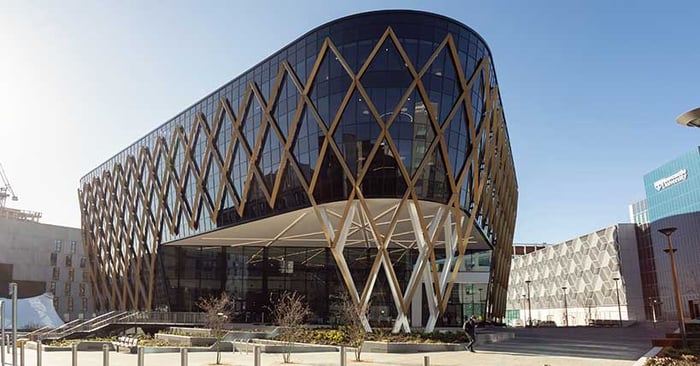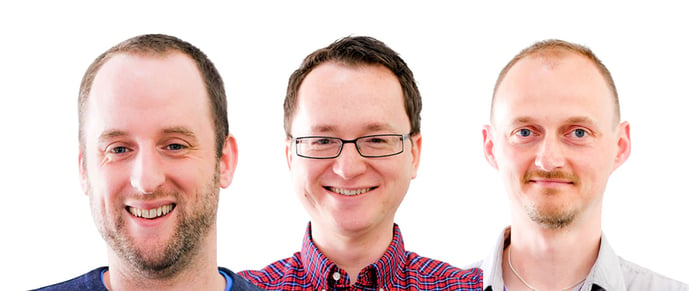
Based in the Core on Newcastle Helix, Connected Energy is a clean tech innovator, with second-life battery energy storage systems across the UK and Europe.
It has recently run a successful project with the National Innovation Centre for Data (NICD) to help them to invest in their data capabilities and glean essential data insights. We talk to Frazer Wagg, Energy Storage Analyst from Connected Energy, about the project outcomes, impact on the environment and their plans for the future.
Who are Connected Energy?
Connected Energy is an engineering-led innovator in energy storage. Its technologies, which utilise second-life electric vehicle (EV) batteries, are rapidly changing the way intensive energy users can access the benefits of low-cost, on-site energy storage solutions. By redeploying partially degraded EV batteries in stationary energy storage applications, Connected Energy almost doubles the usable lives of the batteries (and therefore the embedded resources) before recycling.
What to do when you’re generating 7 million data points, every single day
We knew this was rich raw data that needed to be validated to optimise the outputs of battery systems, predict future trends and transfer data science skills into our organisation. As a result, we decided to embark on a data project with the National Innovation Centre for Data.
Our data accumulation was rising rapidly. Back in late 2018, our systems were producing around 7 million data points every day, and we quickly realised that we needed to take our analysis to the next level if we were going to make the most of this rich seam of raw information. We wanted to know how to use this data from second-life EV batteries to predict their future capacities, and also if we could monitor our battery systems more to optimise their outputs.
Tell us a little bit more about the project
NICD are based in Newcastle near our Connected Energy headquarters. They use your platforms, your technologies to explore your data and transfer data science skills into your organisation.
They helped us to validate data from battery systems and get it into the format we needed. They also made sure we had the right data skills in place to make these methods a part of our future work. The project helped us gain a clear picture of our data to understand what was missing and develop accurate predictions for planned maintenance and warranties.
What new data science skills have your teams learnt?
The process with NICD has helped us create modelling tools which are teaching us how to leverage machine learning and unlock the power of Big Data. As the batteries we use have slight natural variations, our systems are now automatically learning and improving as we access more data, increasing our ability to deliver the most efficient battery energy storage systems for customers, whilst supporting the circular economy.
By understanding our data and by embedding data skills into our organisation we'll have increased our ability to deliver the most efficient battery energy storage systems for customers, whilst supporting the circular economy
How are you supporting the next generation of talent?
We’ve recently started a project with Newcastle University Data Science MSc students. The project, using our E-STOR data, will introduce the students to the vast amounts of data our systems produce, and allow them to explore it in groups around a question. We’re working with NICD again on this programme, which is further strengthening our relationship whilst connecting us with the resource of bright minds available in the North East.
The students are working on an open question we’ve set, and we are looking at a range of different responses from looking at predictive models, or isolated interesting anomalies and the tracking of these, or even creating dashboard visuals for finding them. The project is meant as a real-world data exploration for the students: allowing them to try and develop the skills they are learning on their course, whilst gaining valuable exposure to the world of engineering.
You are based on Newcastle Helix; how does this add value to your business?
Being on Newcastle Helix means we get to capitalise on the proximity of all the expertise within the University: the site really does help to foster a sense of collaboration between its residents. For us we also get the advantage of accessing high-quality potential recruits.
Your technology is a powerful example of the circular economy, extending the lifecycle and reusing batteries. Why is this important?
By understanding our data and by embedding data skills into our organisation, we'll have increased our ability to deliver the most efficient battery energy storage systems for customers, whilst supporting the circular economy.
By positioning and promoting the use of second-life batteries within energy storage, it becomes a key part of the value chain. By adopting a more responsible approach to material usage you can deliver a more competitive global economy. The environmental impact of consumption and production is also reduced.
The greater uptake of energy storage means the greater optimisation of renewable energy in networks. Innovative technologies like this can play a huge part in supporting climate change emergency, not only through our products but through collaborative projects like SmartHubs and this particular one with NICD.
Newcastle Helix is an exemplar of urban sustainability. How can Connected Energy play its part on site?
We have some exciting plans still in the feasibility stage at the moment, but we hope to demonstrate how a partnership with the University, and use of the physical infrastructure, can help support the growth of businesses in our sector.
What’s next?
More of the same. The uniqueness of our systems, and ever-developing battery technology, means that diving deeper and deeper into our data is going to continue to grow in importance. Our Connected Energy E-STOR systems produce around 7 million data points every day and in 2020-21 we’re set to install our largest systems to date, meaning these data points will increase even further.
The original equipment manufacturer (OEM) suppliers we work with, including Groupe Renault, Nissan and Jaguar Land Rover, work collaboratively with us to understand how to extract the most benefit from their batteries: the work we’re doing can ultimately help shape battery technology in the future. That feels pretty good.
North East Automotive Alliance showcase
If you would like to know more about how NICD and Connected Energy have been working together join them for their North East Automotive Alliance showcase this Thursday (6th August) at 10am.
Register here https://www.eventbrite.co.uk/e/neaa-showcase-with-connected-energy-nicd-tickets-112947607334
For more information about Connected Energy and their ambitions, visit https://www.c-e-int.com/


